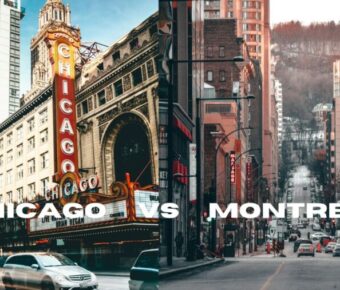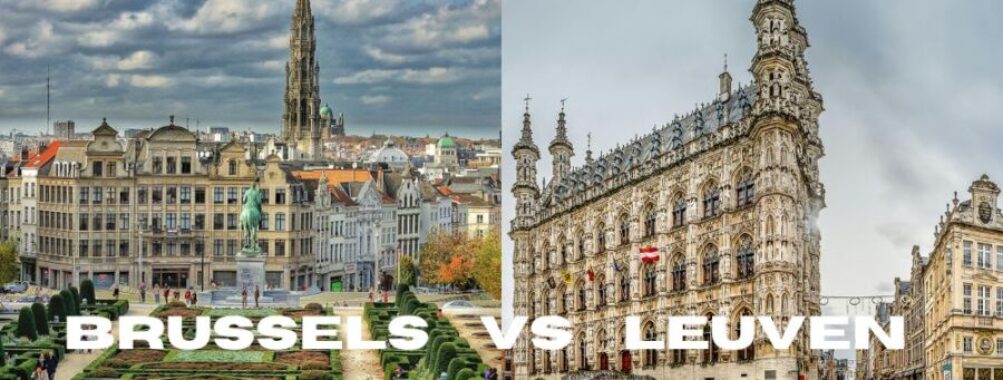
Brussels vs Leuven: Which Belgian City Offers the Best Cultural Experience in 2025
Belgium offers two fascinating cities worth exploring – Brussels and Leuven. These destinations sit just 30 minutes apart by train but offer very different experiences for visitors and residents alike. Brussels has higher costs with daily expenses around €165 per person, while Leuven runs about €214 per day, though Leuven offers better local purchasing power and lower grocery prices.
Brussels shines as Belgium’s cosmopolitan capital, filled with grand architecture and international institutions. Leuven brings a more intimate feel as a charming university town with a rich brewing heritage and vibrant student culture. The cities complement each other perfectly for travelers wanting to experience multiple sides of Belgian life.
Getting between these cities is simple and affordable. A train ticket costs just €5.50 one-way, making it easy to visit both during a Belgian adventure. Many people even choose to live in one city while working in the other, taking advantage of the quick connection.
Table of Contents
- Geographical and Historical Context
- Leuven’s Historical Highlights
- Brussels: The Heart of Europe
- Cost of Living Comparison
- Accommodation Costs
- Daily Expenses
- Transportation Expenditure
- Culinary Scene
- Diverse Cuisine in Brussels
- Local Flavors of Leuven
- Lifestyle and Entertainment Options
- Nightlife and Leisure in Brussels
- Leuven’s Vibrant Culture
- Family and Education
- Schools and Universities in Leuven
- Family Life in Brussels
- Comparison to Other Belgian Cities
- Antwerp vs Brussels
- Bruges and Ghent as Alternatives
- Practical Tips for Moving to Belgium
- Navigating Legal Requirements
- Understanding Local Customs
- Frequently Asked Questions
- What distinguishes the cultural vibes of Brussels from those in Leuven?
- Which city offers better opportunities for students, Brussels or Leuven?
- Can you compare the nightlife experiences between Leuven and Brussels?
- How do the culinary scenes in Leuven differ from those in Brussels?
- In terms of transportation, is it easier to navigate Brussels or Leuven?
- What are the historical landmarks unique to Leuven not found in Brussels?
- Book Your Dream Experience
- More Travel Guides
Geographical and Historical Context
Both Brussels and Leuven grew from medieval settlements into important Belgian cities, each with its own unique path through history. These two cities, just 26 kilometers apart, played crucial roles in shaping modern Belgium.
Leuven’s Historical Highlights
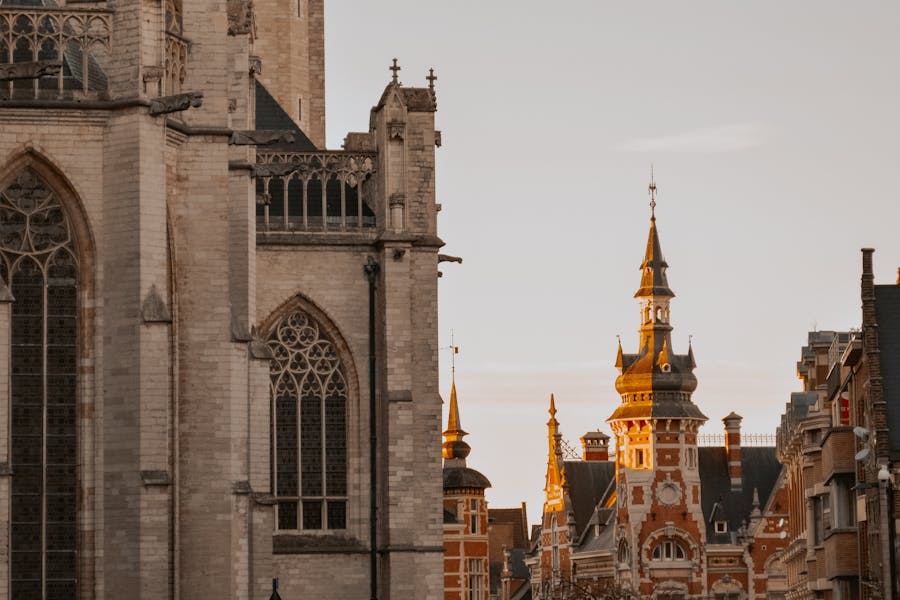
Leuven’s story began in the 9th century when a German emperor built a fortress to defend against Norman invaders. The city gained importance in the 11th century as home to the powerful Counts of Leuven.
The medieval city flourished under the Dukes of Brabant. Its strategic location along the Dyle River helped it become a major trade center. Today, you can still see traces of this rich past in the city’s architecture.
Leuven’s central position in Flanders made it a key player in Belgian history. The city sits about 26 kilometers east of Brussels, connected by both road and canal networks to major waterways.
Brussels: The Heart of Europe
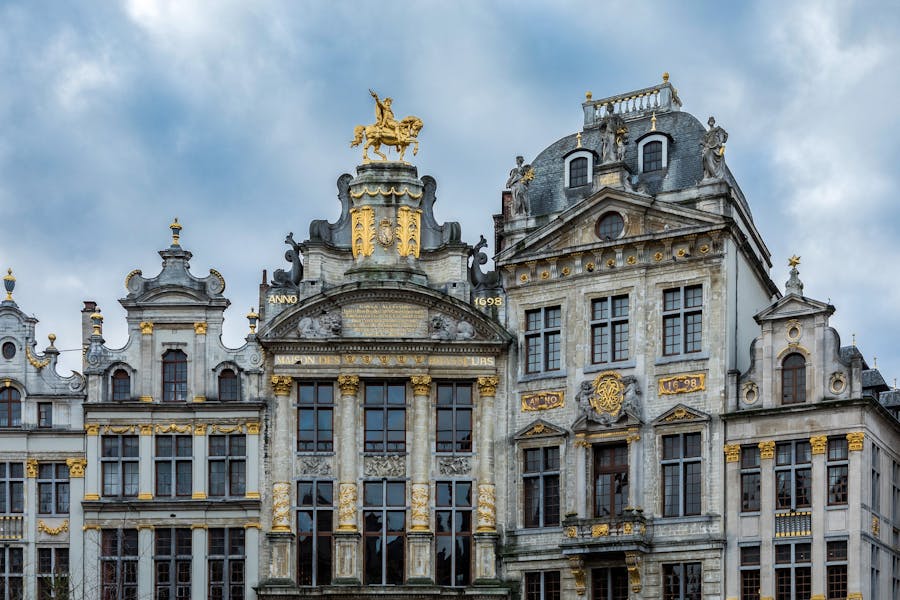
Brussels started as a small settlement that grew under the protection of the Counts of Leuven. The city’s first walls went up with seven gates controlling access – a sign of its growing importance.
The medieval city expanded as merchants and craftsmen settled within its walls. Brussels became a hub for trade and politics, attracting powerful nobles and wealthy citizens.
The city’s growth from a fortress town to Europe’s capital shows in its layout. The historic center still follows medieval street patterns, while newer districts spread outward in modern grids.
Brussels sits in a strategic location that helped it become Belgium’s capital. Its position at the crossroads of Western Europe made it perfect for international trade and diplomacy.
Cost of Living Comparison
Living costs vary significantly between these two Belgian cities. Brussels demands higher expenses across most categories, while Leuven offers more budget-friendly options for daily life.
Accommodation Costs
Rent prices in Brussels run about 15% higher than Leuven. A one-bedroom apartment in Brussels city center costs around €1,200 monthly, while similar units in Leuven average €950.
Student housing in Leuven tends to be more affordable and widely available due to its large university population. Many students find rooms for €400-500 per month.
Brussels offers more variety in housing options, from basic apartments to luxury penthouses. The most expensive areas sit near EU institutions and embassies.
Daily Expenses
Food costs differ slightly between the cities. A basic lunch in Brussels costs about €20, compared to €19 in Leuven.
Grocery prices stay similar in both cities. Basic items like bread, milk, and produce cost roughly the same amount.
Restaurant meals in Brussels typically cost 5-10% more than Leuven. A dinner for two at a mid-range restaurant runs about €75 in Brussels versus €65 in Leuven.
Entertainment and leisure activities often come with a premium in Brussels. Movie tickets, gym memberships, and cultural events generally cost 10-15% more.
Transportation Expenditure
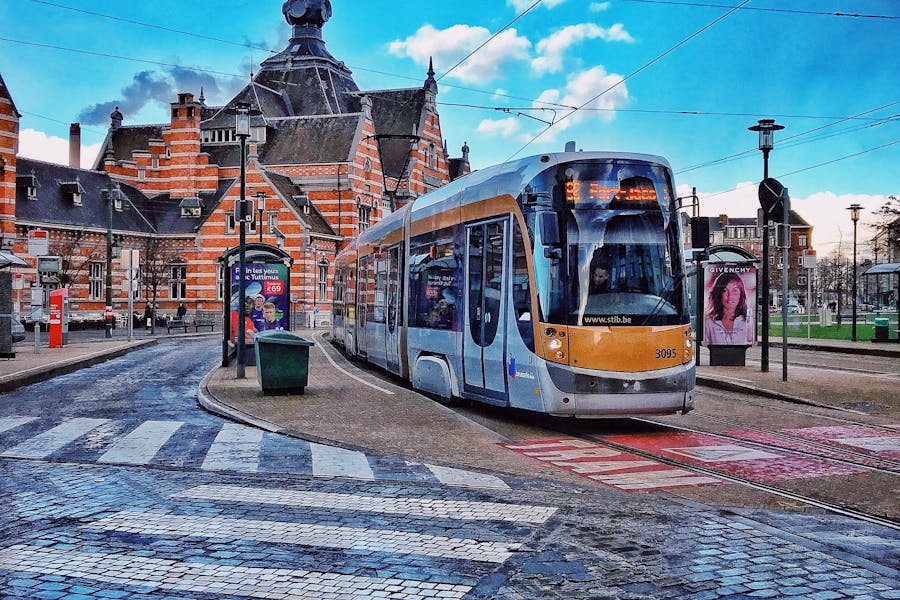
Public transport in Brussels costs €2.10 per journey, while Leuven charges €1.80 for single trips.
Monthly transit passes show bigger differences. Brussels charges €49 for unlimited rides, but Leuven offers passes for €33.
Biking proves popular and practical in Leuven thanks to shorter distances and better infrastructure. This helps many residents save on transport costs.
Taxi fares start at €3 in both cities, but Brussels trips often cost more due to longer distances and traffic delays.
Culinary Scene
Food plays a major role in both Brussels and Leuven, with each city offering unique flavors and dining experiences that showcase Belgian cuisine at its finest.
Diverse Cuisine in Brussels

Brussels stands out as a food lover’s paradise with its mix of traditional and modern dining spots. The city’s restaurants range from casual bistros to Michelin-starred establishments.
Belgian classics like moules-frites and carbonade flamande are everywhere, but you’ll find plenty of international options too. Street food markets pop up regularly, bringing global flavors to locals and tourists alike.
The city’s food scene shines brightest in its local specialties. Waterzooi (creamy chicken stew) and stoemp (mashed potatoes with vegetables) showcase authentic Belgian cooking.
Local Flavors of Leuven

Leuven’s university culture shapes its food scene, creating a blend of student-friendly spots and upscale restaurants. The city offers amazing value for quality meals.
Traditional Belgian taverns serve hearty portions of local favorites. Many restaurants around the old market square specialize in regional dishes like konijn met pruimen (rabbit with prunes).
The city’s markets are worth exploring. The weekly market at Ladeuze Square brings fresh produce and local specialties from nearby farms.
Food trucks and casual eateries cater to students, offering creative takes on Belgian street food. Don’t miss trying the fresh waffles and frites from local vendors.
Lifestyle and Entertainment Options
Brussels and Leuven each offer distinct entertainment scenes that cater to different types of visitors. Both cities pulse with energy, yet they maintain their own unique rhythms and cultural flavors.
Nightlife and Leisure in Brussels
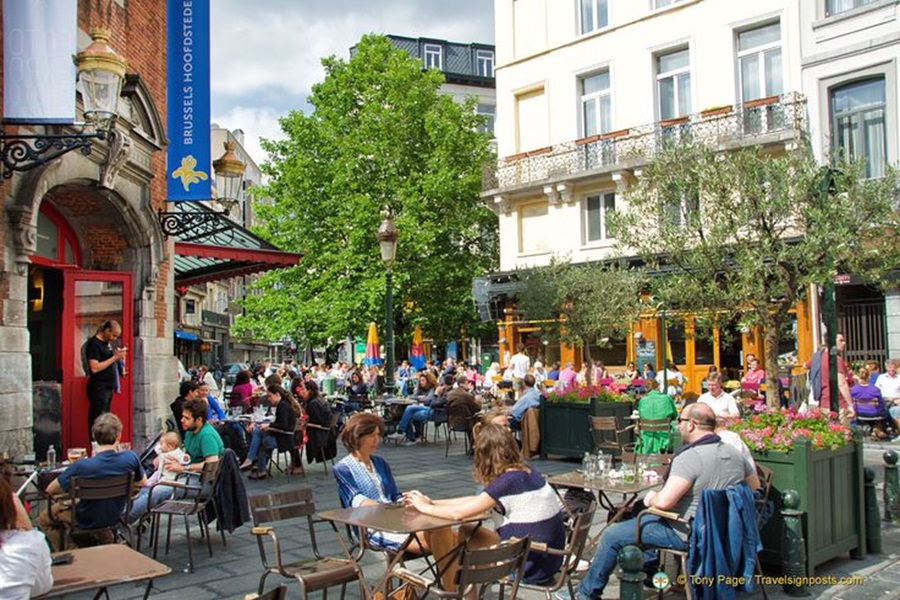
Brussels sparkles after dark with its mix of trendy bars and classic pubs. The Saint-Géry neighborhood draws crowds to its converted market halls, now home to stylish cocktail spots and dance clubs.
The city’s entertainment costs run about 13% higher than Leuven. A nice dinner for two at a neighborhood pub costs more, but you’ll find options for every budget.
Live music venues dot the city center. Jazz clubs hide in historic cellars, while modern concert halls host international acts.
Popular Entertainment Spots in Brussels:
- Grand Place (evening light shows)
- Delirium Café (famous beer bar)
- Flagey (cultural center)
- Mont des Arts (museum district)
Leuven’s Vibrant Culture
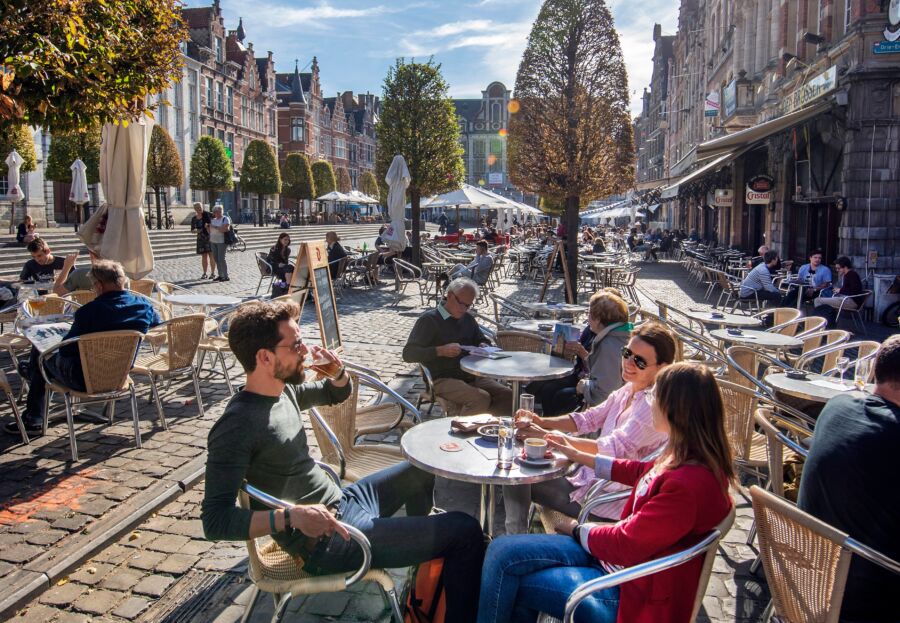
Leuven thrives on student energy, with countless pubs and cafes around Oude Markt. The square transforms into an open-air party spot on warm evenings.
The university brings cultural events year-round. You’ll find art exhibitions, theater shows, and music festivals that blend local talent with international artists.
Beer lovers flock to brewery tours and tasting rooms. The Stella Artois brewery offers tours that show off the city’s brewing heritage.
Entertainment Highlights:
- Oude Markt (nicknamed “longest bar in Europe”)
- M-Museum (contemporary art)
- University Hall concerts
- STUK arts center
Family and Education
Both cities offer distinct advantages for families and students. Leuven shines with its prestigious university and high-quality schools, while Brussels provides diverse international education options and family-friendly activities.
Schools and Universities in Leuven

KU Leuven stands as one of Europe’s oldest and most respected universities, drawing students from across the globe. The university creates a youthful, vibrant atmosphere throughout the city.
Flemish schools in Leuven maintain excellent academic standards. Students begin regular testing at age 6, ensuring strong educational foundations.
The smaller city size means shorter commute times to schools. Kids can often walk or bike safely to their classes.
Class sizes tend to be smaller in Leuven compared to Brussels, giving students more individual attention.
Family Life in Brussels
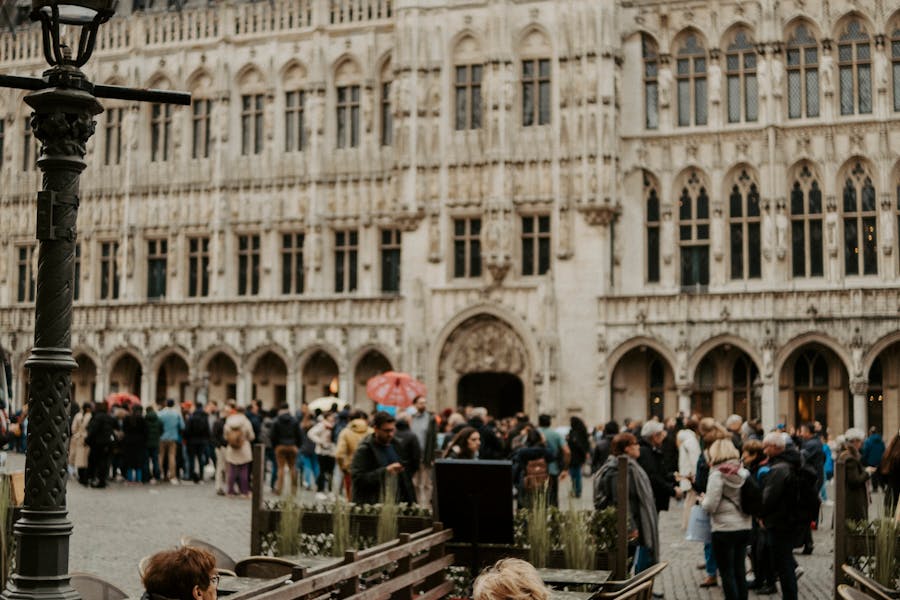
Brussels offers many family-friendly attractions and activities, especially during summer months. Parks, museums, and cultural events keep children engaged year-round.
The city boasts a wide selection of international schools. This makes Brussels popular among expat families who want educational options in different languages.
Housing costs run about 13% higher than Leuven, but families find more variety in home types and neighborhoods.
Many families enjoy the mix of urban amenities and residential areas. Local parks and playgrounds exist in most neighborhoods.
The public transport system makes it easy for families to explore the city together, though traffic can make commutes challenging.
Comparison to Other Belgian Cities
Belgium’s major cities each offer distinct experiences, architecture, and cultural attractions that set them apart from Brussels and Leuven.
Antwerp vs Brussels
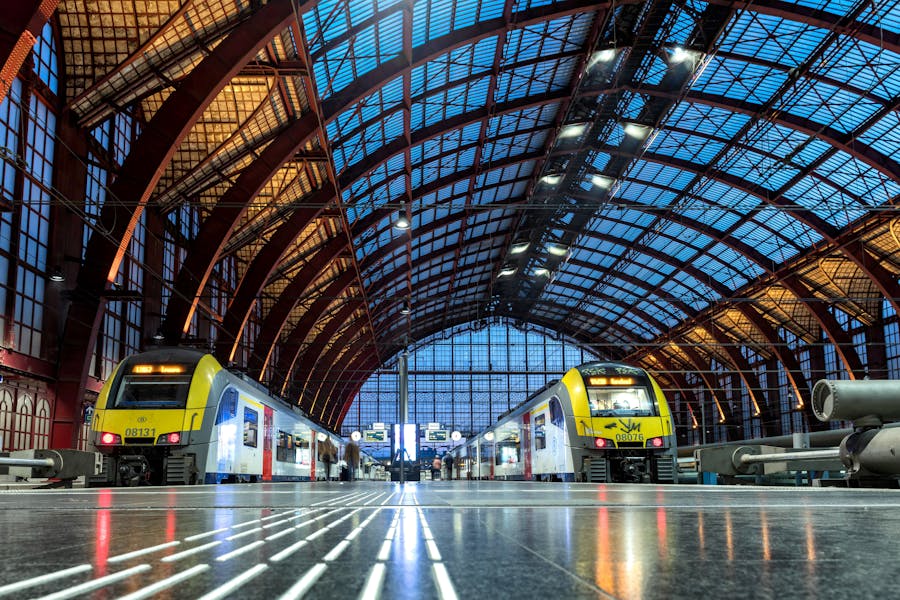
Antwerp stands as Belgium’s second-largest city and biggest port. The city features stunning Renaissance architecture and a thriving diamond district that draws traders worldwide. Antwerp’s Central Station ranks among Europe‘s most beautiful train terminals with its marble halls and glass dome.
The fashion scene in Antwerp outshines Brussels, with trendy boutiques and the famous Royal Academy of Fine Arts. Its historic center feels more compact and walkable than Brussels.
Local food prices tend to be 10-15% lower in Antwerp compared to Brussels. The city’s specialized beer bars and seafood restaurants give visitors unique dining options.
Bruges and Ghent as Alternatives
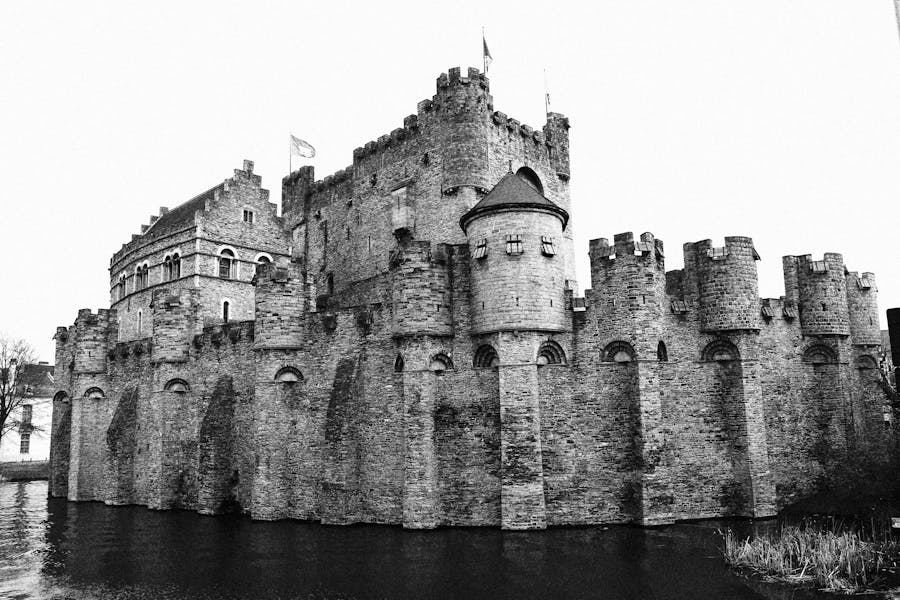
Bruges captures medieval charm with its canals, cobblestone streets, and well-preserved Gothic buildings. The city center feels like stepping into a fairy tale, complete with horse-drawn carriages and historic bell towers.
Ghent combines historic architecture with a youthful vibe thanks to its large student population. The city’s Gravensteen castle and Saint Bavo’s Cathedral draw visitors year-round.
Both cities offer cheaper accommodations than Brussels. A typical hotel room costs 20-30% less in either Bruges or Ghent.
The smaller size of these cities makes them perfect for 2-3 day trips. You can easily walk between major attractions without needing public transport.
Practical Tips for Moving to Belgium
Moving to Belgium requires careful planning and local knowledge to navigate the complex requirements and cultural norms. Getting these details right makes settling in much smoother.
Non-EU citizens need to register at their local town hall within 8 days of arrival. Bring your passport, work contract, rental agreement, and proof of health insurance. The process takes 2-3 weeks.
Getting a Belgian ID card is the next step. You’ll need to schedule an appointment and provide:
- Passport photos
- Proof of address
- Employment details
- Birth certificate (translated)
Setting up utilities requires your ID and proof of residence. The main providers are:
- Electricity: Engie, Luminus
- Water: De Watergroep
- Internet: Telenet, Proximus
Understanding Local Customs
Belgians value punctuality and planning ahead. Make appointments for everything – even casual meetups with friends.
Language matters a lot. In Leuven, Dutch is the main language, while Brussels is bilingual French-Dutch. Learning basic greetings goes far:
- Dutch: “Goedemorgen” (good morning)
- French: “Bonjour” (hello)
Belgians separate work and personal life strictly. Don’t expect instant friendships with colleagues. Join local clubs or sports teams to build connections.
Meal times follow a set schedule:
- Lunch: 12:00-2:00 PM
- Dinner: 6:00-8:00 PM
- Shops often close during lunch hours
Frequently Asked Questions
Brussels and Leuven each offer distinct experiences in Belgium, from student life to gastronomy and historical attractions. The cities present unique charms that attract different types of visitors.
What distinguishes the cultural vibes of Brussels from those in Leuven?
Brussels has a more cosmopolitan atmosphere with international organizations and diverse communities. The city mixes business professionals, tourists, and locals in its busy streets and grand squares.
Leuven feels more like a classic university town with a youthful energy. Students fill the cafes and historic streets, creating a relaxed and friendly atmosphere.
Which city offers better opportunities for students, Brussels or Leuven?
Leuven stands out as Belgium’s premier student city. The KU Leuven university shapes the entire city’s character, with student facilities spread throughout town.
Brussels offers more internship chances at international companies and organizations. Students can access multiple universities and language schools across the city.
Can you compare the nightlife experiences between Leuven and Brussels?
Leuven’s nightlife centers around student bars and pubs near the Old Market Square. The venues offer cheaper drinks and a more casual atmosphere perfect for college students.
Brussels provides more variety with fancy cocktail bars, dance clubs, and live music venues. The Saint-Géry and Saint-Jacques neighborhoods stay active until late.
How do the culinary scenes in Leuven differ from those in Brussels?
Brussels features more high-end restaurants and international cuisine options. Street food markets and food halls offer everything from Belgian classics to global dishes.
Leuven focuses on student-friendly pricing and traditional Belgian food. Local specialties include Stella Artois beer, which started at the city’s brewery.
Leuven’s compact size makes it perfect for walking or cycling. Most attractions sit within a 15-minute walk from the center.
Brussels needs more planning with its larger size and multiple districts. The metro, trams, and buses help reach different areas, though traffic can be challenging.
What are the historical landmarks unique to Leuven not found in Brussels?
The Gothic-style Town Hall features intricate stone carvings and statues unlike anything in Brussels. The 15th-century building stands as Leuven’s pride.
The University Library, rebuilt after World War I, includes a tall bell tower with stunning city views. The Great Beguinage, a historic housing complex, shows medieval architecture at its finest.
